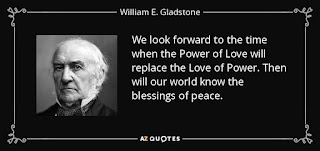The Story of Love | Lesson Story
Once upon a time, near a city, a beautiful woman whose name was Jilna lived in her small village in a fragrant ginseng. Her life was full of happiness, but her lack of happiness was due to one thing: she was lonely.
One day, Libha Jin was strolling through the village fields touching the flowers like the previous days when a young boy suddenly appeared in front of her. The boy was very handsome and had a happy smile on his face which Libina liked very much.
The boy started talking to Liba and the two met. The two of them talked for several days, and they both fell deeply in love.
But their journey of love was not an easy one, because Liba was a Jinn and the boy was a human. Between them was a modern and very different world. But they kept trying to keep their love alive.
Beautiful Power of Love Story ❤️
Despite many difficulties, they both manage to keep their love alive and continue their happy journey together.
After that, they became part of their lives with each other and started living happily ever after.
This story teaches us that love can transcend any worldly difference and be sustained if it is acted upon with a firm heart of love.
Power of Love
As water is to fish, power is to people: It is the medium we swim in. And it is typically just as invisible to us.
Power is not limited to leaders or organizations; it doesn't require outright acts of domination. It's a basic force in every social interaction. Power defines the way we relate to each other. It dictates whether you get listened to. It determines whether your needs take priority or get any attention at all.
The problem for romantic partners is that power as normally exercised is a barrier to intimacy. It blunts sensitivity to a partner and precludes emotional connectivity. Yet this connection is what human beings all crave, and need. It satisfies you deeply.
But there's only one path to intimacy. It runs straight through shared power in relationships. Equality is not just ideologically desirable, it has enormous practical consequences. It affects individual and relationship well-being. It fosters mutual responsiveness and attunement. It determines whether you'll be satisfied or have days (and nights) spiked with resentment and depression. “The ability of couples to withstand stress, respond to change, and enhance each other’s health and well-being depends on their having a relatively equal power balance,” reports Carmen Knudson-Martin of Loma Linda University. Equality, psychologists agree, is the world's best antidote to isolation. It's just not easy to attain or to sustain.
Power Changes Everything
Denying the dignity of one partner has consequences not only for relationship stability and happiness, but for health.
Power, says Berkeley psychologist Dacher Keltner, has distinct biological correlates. The “new science of power” emerging from his decades-long research shows that “people with power tend to behave like patients with damage to the brain’s frontal lobes, a condition that can cause overly impulsive and insensitive behavior.”
The possession of power changes powerholders—usually in ways invisible to them—by triggering activation of the behavioral approach system, based in the left frontal cortex and fueled by the neurotransmitter dopamine. It's automatic. However, it makes powerful people quick to act on appetites, to detect opportunities for material and social rewards such as food, money, attention, sex, and approval. They think about sex more and flirt more flagrantly. Poorly attuned to others, they pay little attention to others' feelings and assess their attitudes, interests, and needs inaccurately. Politeness be damned, they act rudely, indulging their own whims. “Having power,” Keltner reports, “makes people more likely to act as sociopaths.”





